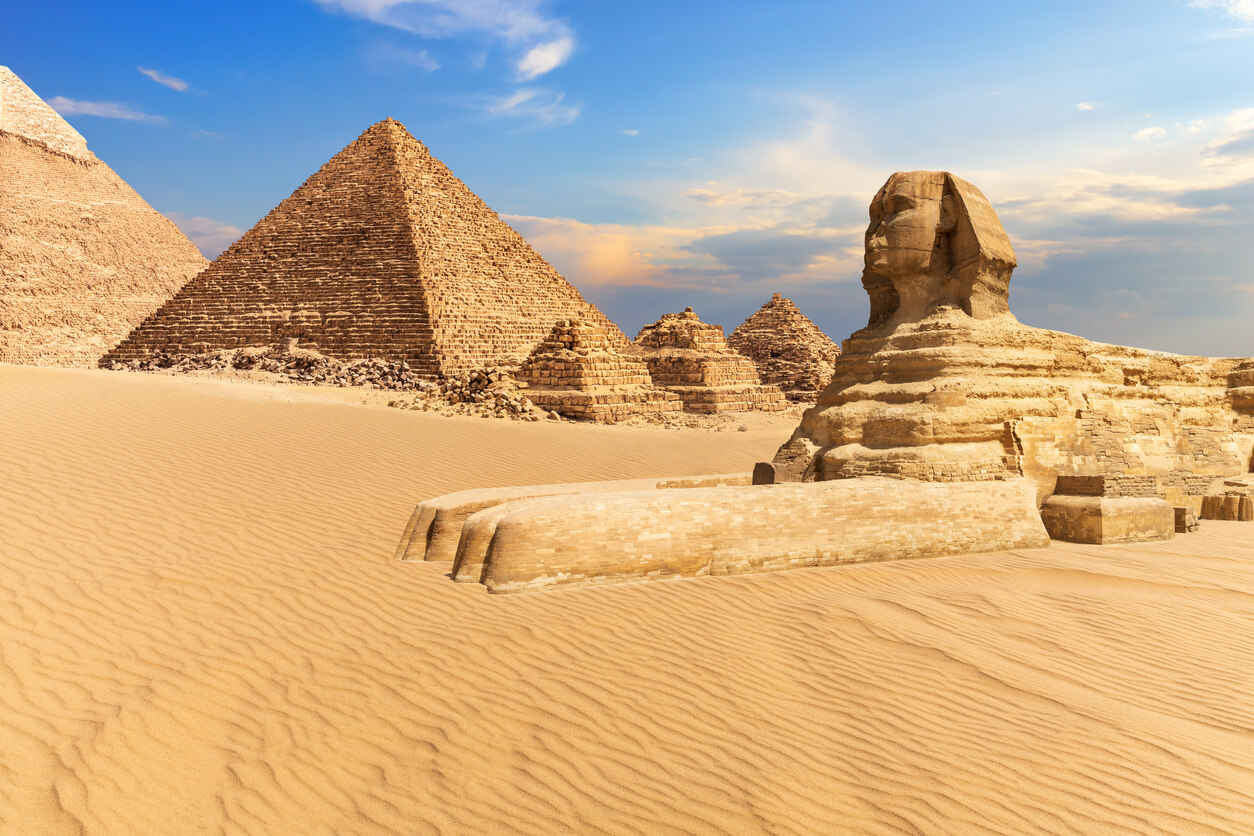...
lunes, 3 de julio de 2023
martes, 2 de mayo de 2023
Biographies people of egypt

Osiris
Origin in the Egyptian His occupation is to be a god and king in Egyptian mythology.
His cult lasted from about (3150-2613 B.C.)
I don't Know Who his family.
CLEOPATRA
Her name si CLEOPATRA, she was born in Alexandria in January 69 B.C.
She was the last ruler of the Pharaoh.
I Don't know her parents.
She died on Decembr 31 B.C.
Ra
He is represented with the body of a man, the head of a falcon and on it a solar disc surrounded...
lunes, 20 de febrero de 2023
HISTORY AND GEOGRAPHIC LOCATION

It was an ancient civilization, which originated along the middle and lower reaches of the Nile River, whose history spans more than three millennia.
The original name of the country, especially during the Old Kingdom, was Kemet (Km.t), 'black land, by the color of the fertilizing silt that covered during the regular annual flood the valley that is located on the banks of the Nile River, in opposition to Deshret (dsr.t, 'red earth'), by the sand...
EGYPTIAN MYTHOLOGY

It is the set of religious beliefs that were practiced in Ancient Egypt. The development of such mythology covered a period of thousands of years, and through it they related the creation of our world, and that of their gods. originated approximately more than 3000 years before Christ, and spanned three pharaonic epochs...
PHARAOHS

Cleopatra: Was the last ruler of the Ptolemaic dynasty of Ancient Egypt,
although nominally his son Caesarion succeeded him as pharaoh. He was also a
diplomat, naval commander, linguist6 and writer of medical treatises.
Ramsés: He was the third pharaoh of the Dynasty, he is remembered as the
greatest, most celebrated and most powerful pharaoh of the New Kingdom. Ramesses
defeated the Sea Peoples off the Nile coast.
Narme: Narmer...
GODS

Osiris:
He is a god and king of Egyptian mythology represents the regeneration of the Nile River and the
underworld. He was the inventor of agriculture and religion. He drowned in the Nile.
Isis:
She was a powerful magician, wife of Osiris, the god of the dead, and mother of Horus. With her magical knowledge, she managed to resurrect her husband and protect little Horus from the murderer of his father, the god Set.
The name Isis means throne.
Ra:...


/GettyImages-594835943-57c941c53df78c71b6e6fe60.jpg)










